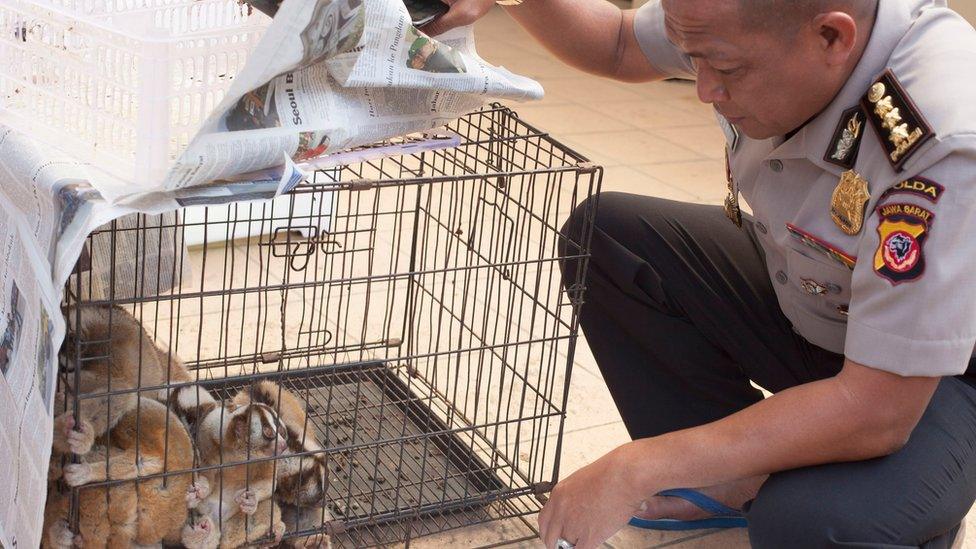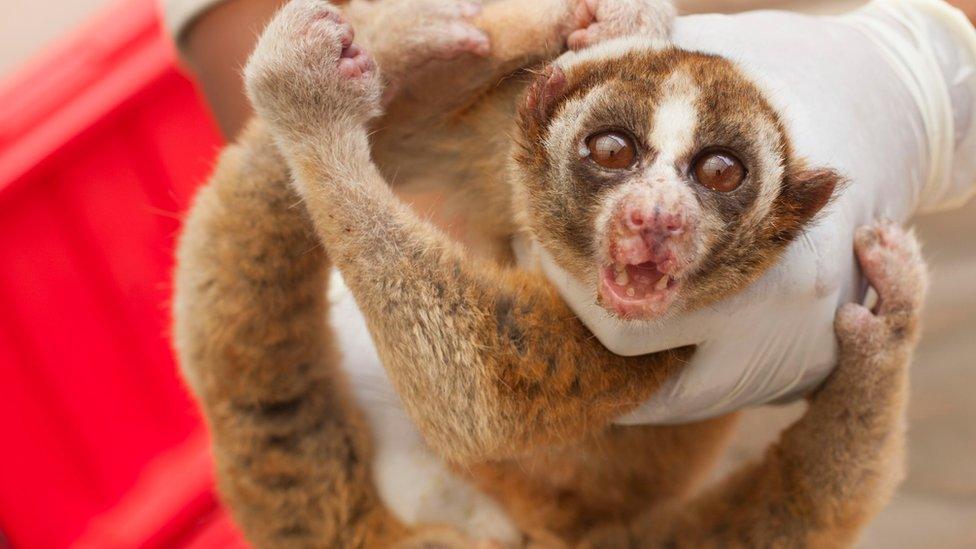Indonesian lorises 'saved from sale on Facebook'
- Published

The small primates live in trees and have a toxic bite
Dozens of critically-endangered primates have been saved in Indonesia from being sold by traffickers on Facebook, a UK charity has revealed.
East Sussex-based International Animal Rescue (IAR) said 34 "extremely stressed" slow lorises had been seized.
Some had bite wounds, six had been shot with air rifles, some had their teeth clipped and several were pregnant.
Five people - three suspected hunters and two dealers - were arrested in the operation by West Java police.
Charity officials said the nocturnal primates were being sold via social media by animal traffickers seeking big profits.

West Java Regional Police seized 34 of the "extremely stressed" animals
The Javan slow loris is among the International Union for Conservation of Nature's 25 most endangered primates.
Numbers in the wild have been decimated by their illegal trade and social media is a new method being used increasingly by animal traffickers.
Hunters sell them for just £3 to dealers who then trade them on for between £12.50 and £31.
Keeping slow lorises as pets is banned under Indonesian law, but many are sold openly every day in markets, the charity said.

The lorises face a long rehabilitation process until a suitable place is found to release them
The seized animals are now receiving intensive care at an IAR centre in Java.
Wendi Prameswari, the animal care manager at the centre in Java, said the slow lorises would go through a quarantine process and receive close medical attention.
She said: "They need very intensive treatment and care during the first few days in particular and often some of them succumb to the high stress levels, infections and injuries received during capture, packing, transportation and selling."
Karmele Llano Sanchez, programme director of IAR Indonesia, said: "Stopping these syndicates is crucial for the survival of so many endangered species, including the slow loris."
- Published11 September 2012
